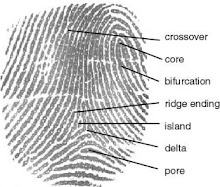On a recent trip to Stanford University, I met with composer and professor Jonathan Berger, who is collaborating with colleagues in Stanford’s School of Medicine to develop an upper limb motion instrument that will provide real-time audio feedback of upper limb activities. The Pediatric Upper Limb Motion Instrument is being developed for presentation at "Medicine and Muse" at the Stanford University School of Medicine in 2008. The instrument will augment sensory-motor feedback, producing a "melody" representing key upper limb motions to facilitate motor learning and improve upper limb function in children with neuromuscular disorders such as cerebral palsy, obstetrical palsy, congenital anomalies, and musculoskeletal injury.
This data sonification project examples the increasing integrative approaches between arts and scientific research. These convergent efforts produce enormous contributions of new data for analysis and mining, and bring together the values of both qualitative and quantitative research approaches of great complexity. Investigations into the efficacy of art and science explorations suggest that this is a vibrant and expanding interdisciplinary domain with real world applications.


